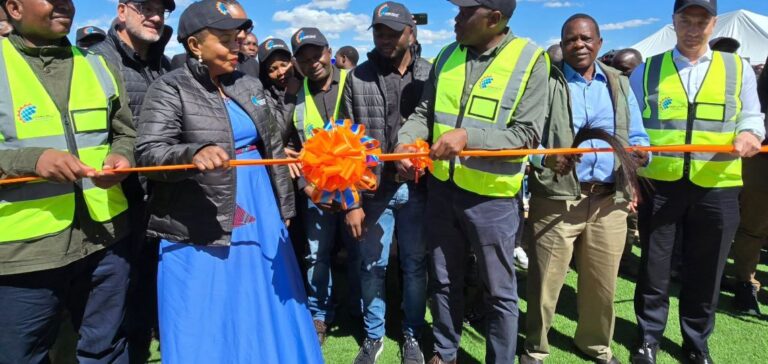On May 10, Zambia’s Minister of Energy, Peter Makozo Chikote, officially launched construction of the Cooma solar power plant in the Choma district, located in the south of the country. This project, which represents the first phase of a 100 MW plant, aims to boost national electricity generation capacity, particularly amid hydroelectric dependence and water shortages. The first phase includes 50 MW of generation capacity, along with 20 MW dedicated to energy storage.
A project led by an international consortium
The Cooma project is being developed by a consortium comprising Turkish firm YEO Teknoloji Enerji and local independent power producer GEI Power. It is backed by a long-term power purchase agreement with the state-owned utility ZESCO. During the launch ceremony, the minister stressed the need for rapid execution and strong local participation. The construction phase is expected to create approximately 150 direct jobs and 1,500 indirect jobs, although no specific financing details were disclosed.
Efforts to cut administrative delays
Minister Chikote also highlighted the reduction of solar project approval times to just 48 hours, down from several months. This reform is part of a national strategy to add 1,000 MW to the grid by the end of 2025, aiming to diversify electricity production and address the country’s energy deficit. The effort includes engaging traditional leaders to facilitate land access for solar infrastructure.
At the event, the traditional leader of Cooma expressed support for the project, offered additional land for possible future expansions, and urged his community to safeguard the infrastructure.
A context of energy diversification and regional cooperation
The Cooma plant is being launched within a broader framework of energy mix diversification in Zambia. While hydropower still accounts for over 80% of the country’s electricity capacity, several solar projects are underway, including a 67 MWp plant led by Solarcentury Africa and the Industrial Development Corporation (IDC). Additionally, Zambia approved in 2025 a $270mn power interconnection project with the Democratic Republic of the Congo (DRC), and began implementing another valued at $292mn with Tanzania.
The goal is to enhance national energy security while integrating into a broader context of regional energy cooperation.






















